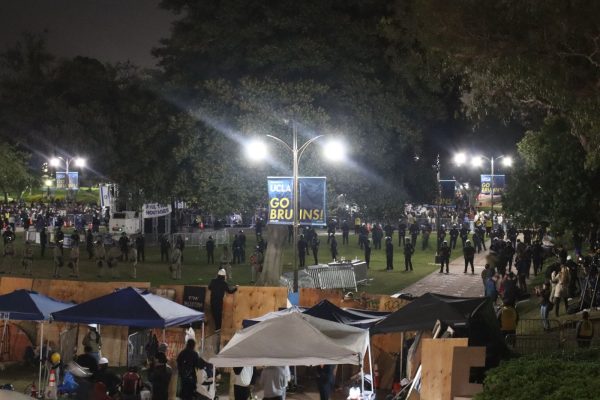Buffalo Wild Wings Accused of Racism — Again
The Company’s Response Seems Ill-Considered
Buffalo Wild Wings has not managed to thwart racism in its restaurants. Three stories of race-related discrimination at BWW made headlines in 2019 and at least three lawsuits were filed against the company for alleged racist behavior in the past five years. While this may not sound like a significant number of incidents for a corporation with over 1200 locations, it is not so disparate from the 12 discrimination lawsuits faced by Chick-fil-A, the official restaurant of the Ku Klux Klan, since 1998.
The most recent headlines relate to a November 2019 Facebook posting that went viral. In this post, Mary Vahl states that two employees of the BWW restaurant in Naperville, Illinois initially expressed reluctance at seating her party of 18 individuals, the majority of whom were African American, near a regular customer who requested that African Americans not be seated near him. Vahl said that the employee asked her husband about the race of members of the party and explained that the regular customer did not want to sit near African Americans. Regardless, the party insisted on sitting at the table to which they were originally directed. Following a subsequent discussion between an employee and the regular customer, her party was advised that they would have to move because their current table was reserved. After the request to move to another table, her party opted to leave the restaurant and contact head office about the discrimination they experienced.
In the past five years, allegations of a hostile, racist work environment have been made by African American employees of BWW in Kansas and Ohio. In this time frame, African American customers in Texas, and California have also alleged racist behavior by workers at BWW.
In this latest instance, the employees do not appear to have been racist themselves, rather they caved to pressure applied by a racist bully and in doing so, discriminated against a group of customers.
BWW fired the service manager and the shift manager and banned the regular customer from all of its restaurants. BWW announced its intention to supplement the company-wide RESPECT program that it launched this fall with sensitivity training throughout its Chicagoland locations.
There is no suggestion that these employees wished to discriminate against African American customers. Rather these employees seemed to have interpreted corporate policy as prioritizing the interests of regular customers, even if that means acquiescing to racist demands.
Therefore, sensitivity training may not be the appropriate remedy. Rather, clarifying corporate priorities might be a more effective response.
Supplementing the RESPECT program with sensitivity training only in the Chicagoland area likely will create more problems than it addresses for BWW. The provision of sensitivity training in the Chicagoland area could be interpreted as an indication that the RESPECT program alone is insufficient to address concerns about discrimination. If BWW considers the RESPECT program to be generally suitable for this purpose, perhaps the additional training is only to be offered in Chicagoland because the corporation recognizes that racist behavior is more prevalent in the Chicagoland location. If there is a regional corporate culture within BWW that is particularly racist, then the post-offence dismissal of employees and sensitivity training for existing employees is unlikely to address the systemic nature of the problem. Regardless, should racist behavior occur in a location outside of Chicagoland, lawyers for any plaintiff are likely to assert that BWW failed to adequately train employees in that particular restaurant and that BWW knew that such training was insufficient as additional training was provided in Chicagoland.
Racial discrimination in the restaurant industry has been well-documented as a result of media reports of alleged discrimination and studies of workplace discrimination. According to a study published in 2016, only 10.5% of the 200 restaurant employees surveyed reported never engaging in or observing racialized discourse.
The study found that African Americans frequently experience poor, less attentive service; slower seating; and a reluctance by servers to attend to tables of African American customers.
Lawsuits against various restaurants have alleged a variety of discriminatory practices including race-related comments, racial bias in hiring practices, refusals of service to African Americans, slower service in seating African Americans, and requiring African Americans to prepay for their meals.
In the restaurant industry, the average turnover rate for hourly employees is 121%. BWW’s employee turnover is consistent with industry averages. In some instances, entire restaurant teams will turn over each year. Operating in all 50 states with 1,206 locations and over 40,000 employees, ongoing country-wide hiring and training would be a huge challenge for BWW.
When hiring is difficult, local managers who are likely required or incentivized to meet revenue targets on a daily and weekly basis are likely to prefer to be fully-staffed, even if this means hiring less than ideal candidates.
Accordingly, it seems critical that regional, state and city managers be highly trained in guarding the corporate culture in a way that does not impair revenue. This would likely involve devising a strategy to ensure that no managers inclined to discriminate are hired or retained. It would also likely involve providing restaurant-level managers with interview strategies to detect and decline applications from racist individuals or, in the event it is considered prudent to hire or retain a suspected racist, to closely monitor that person’s behavior to ensure no discrimination occurs at work.
Perhaps this is already occurring at BWW. Even with such safeguards in place, discriminatory behavior can still occur from time to time. If so, publicizing the rapid dismissal of the employees who violate anti-discrimination laws within the organization may be the most effective approach to deterring such behavior. Unfortunately, there is likely no action that BWW can take to allay the trauma experienced by customers who have been subject to discriminatory treatment.











